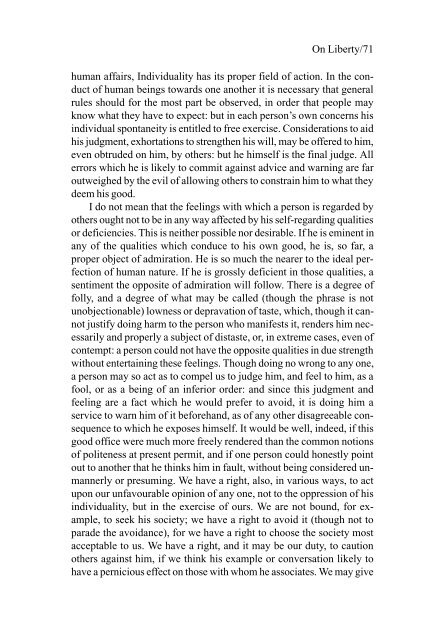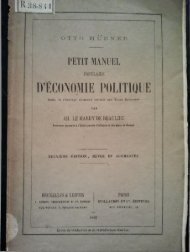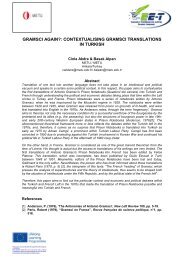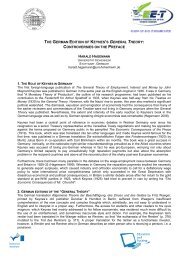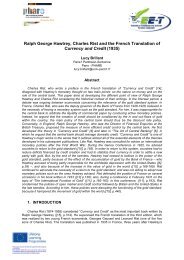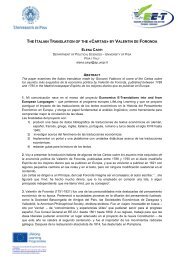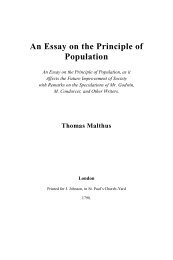On Liberty John Stuart Mill Batoche Books
On Liberty John Stuart Mill Batoche Books
On Liberty John Stuart Mill Batoche Books
Create successful ePaper yourself
Turn your PDF publications into a flip-book with our unique Google optimized e-Paper software.
<strong>On</strong> <strong>Liberty</strong>/71human affairs, Individuality has its proper field of action. In the conductof human beings towards one another it is necessary that generalrules should for the most part be observed, in order that people mayknow what they have to expect: but in each person’s own concerns hisindividual spontaneity is entitled to free exercise. Considerations to aidhis judgment, exhortations to strengthen his will, may be offered to him,even obtruded on him, by others: but he himself is the final judge. Allerrors which he is likely to commit against advice and warning are faroutweighed by the evil of allowing others to constrain him to what theydeem his good.I do not mean that the feelings with which a person is regarded byothers ought not to be in any way affected by his self-regarding qualitiesor deficiencies. This is neither possible nor desirable. If he is eminent inany of the qualities which conduce to his own good, he is, so far, aproper object of admiration. He is so much the nearer to the ideal perfectionof human nature. If he is grossly deficient in those qualities, asentiment the opposite of admiration will follow. There is a degree offolly, and a degree of what may be called (though the phrase is notunobjectionable) lowness or depravation of taste, which, though it cannotjustify doing harm to the person who manifests it, renders him necessarilyand properly a subject of distaste, or, in extreme cases, even ofcontempt: a person could not have the opposite qualities in due strengthwithout entertaining these feelings. Though doing no wrong to any one,a person may so act as to compel us to judge him, and feel to him, as afool, or as a being of an inferior order: and since this judgment andfeeling are a fact which he would prefer to avoid, it is doing him aservice to warn him of it beforehand, as of any other disagreeable consequenceto which he exposes himself. It would be well, indeed, if thisgood office were much more freely rendered than the common notionsof politeness at present permit, and if one person could honestly pointout to another that he thinks him in fault, without being considered unmannerlyor presuming. We have a right, also, in various ways, to actupon our unfavourable opinion of any one, not to the oppression of hisindividuality, but in the exercise of ours. We are not bound, for example,to seek his society; we have a right to avoid it (though not toparade the avoidance), for we have a right to choose the society mostacceptable to us. We have a right, and it may be our duty, to cautionothers against him, if we think his example or conversation likely tohave a pernicious effect on those with whom he associates. We may give


